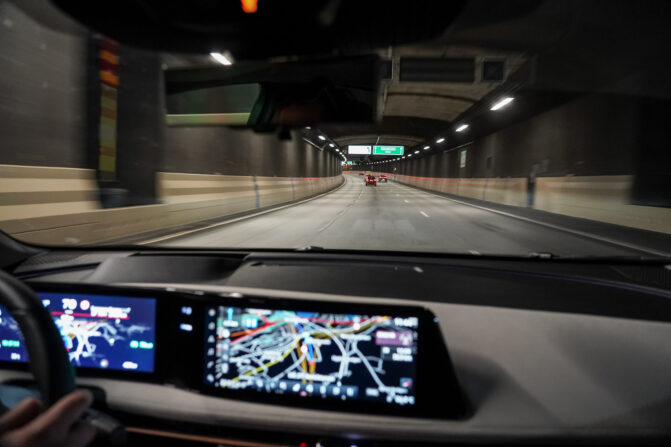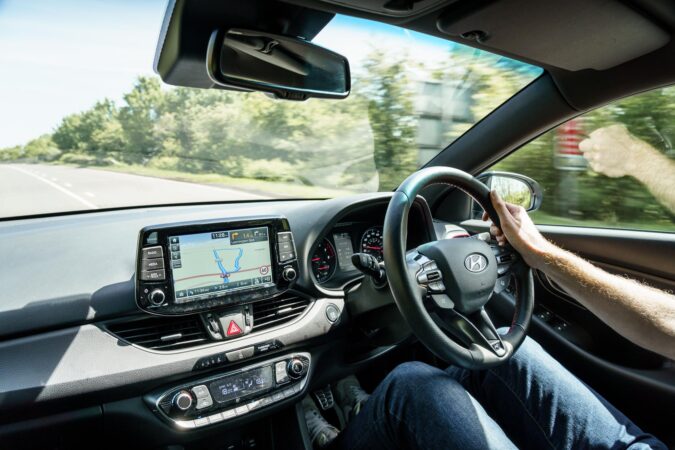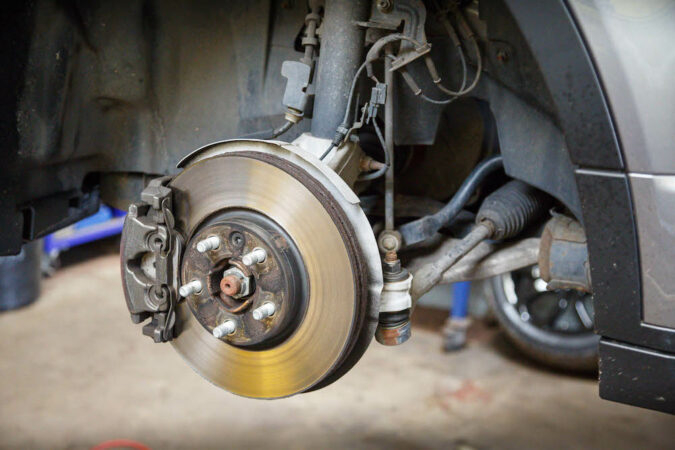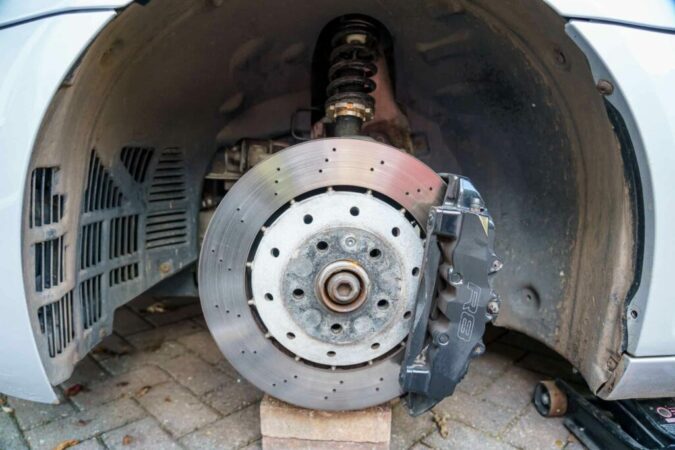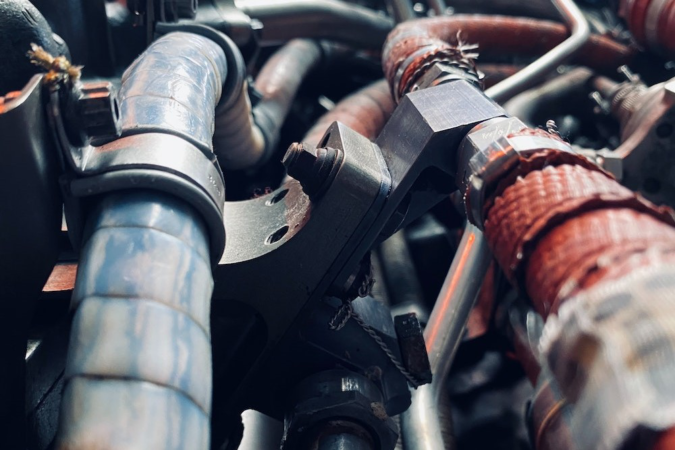As car enthusiasts, we all love to put the pedal to the metal. The 0 to 60 dash is enough to get the blood pumping in any car enthusiast’s veins. But, there is a common question about this we hear from time to time. That is, “My car shakes when I hit 60 mph.” Is this something you should worry about? Keep reading this article if you want to find out the exact answer.
A car that vibrates at speed can give drivers an uneasy feeling. On top of that, it can make people question the safety of their vehicle as well. Well, you are not the only one who has faced this situation. In fact, shaking at higher speeds is a problem shared by many vehicle models.
A number of reasons can lead your vehicle to shake and become unsettled at high speed. In this article, we will tell you all about them. Not only that, we’ll inform you of all the fixes for this issue as well. Cars can shake under acceleration, while driving, or even under braking. All these situations happen due to different reasons. First, let’s take a look at what causes a car to shake while driving.
Car Shaking While Driving
A number of issues can cause a car to shake while on the road. Out of them, the most common ones are,
- Tire Issues
- A Loose Lug Nut
- Faulty Spark Plug
- Engine Mount Issues
- A Bent Axle
1. Tire Issues
If you are experiencing car shaking issues right after a tire change, the most probable cause is a wheel imbalance. The vibration will be modest at lower speeds but will get more severe as the wheels rotate faster. On some occasions, this may cause the steering wheel to shake as well.
If you suspect that bad tires are the root cause, take your vehicle to an alignment shop as soon as possible. There, the technicians will fix the imbalance using a balancing machine.
2. A Loose Lug Nut
Lug nuts are what securely attach the wheels to a vehicle. Sometimes, mechanics forget to fully tighten these lug nuts after working on vehicles. A mild or severe wheel wobble can develop as a result of this.
If you continue to drive the vehicle in this state, the lug nuts can eventually loosen up so much that they fall off the vehicle.
If this happens, the wheel would detach from the vehicle an accident will be inevitable.
You don’t even have to go to a mechanic to tighten loose lug nuts. Simply, park the vehicle on a level surface and then tighten the nuts using a torque wrench. We recommend blocking off two wheels to prevent the vehicle from rolling while you are working on it.
3. Faulty Spark Plug
Spark plugs may seem like a weird cause for a problem like this. But, bad spark plugs often cause vehicles to shake while driving (which you can diagnose by figuring out how to test a spark plug). You see, good spark plugs are essential for an engine to function properly. Once they go bad, it can result in engine misfires.
If the vehicle is vibrating while driving as well as idle, a faulty or clogged spark plug is probably the main culprit. Usually, cleaning or replacing the spark plugs with new ones will remedy the shaking problem.
4. Engine Mount Issues
A broken engine mount is another cause that can lead your vehicle to shake when driving. The engine mount has two main responsibilities. The first one is connecting the engine to the rest of the vehicle. The other one is acting as a damper that decreases vibrations throughout the vehicle.
However, when an engine mount fails, the weight of the engine shifts from where it should be. This can have an effect on the gearbox mount, and cause other vehicle components to misalign. Additionally, broken engine mounts result in unnecessary vibrations too.
Usually, the best way to fix a broken engine mount is to replace it with an all-new one. Sometimes, the affected engine mount may be repairable by replacing the bushings, However, this is not a certainty. You should have a conversation with your mechanic to decide the best course of action.
5. A Bent Axle
If your vehicle shakes excessively when going 40 – 50 mph, a bent axle might be the part to blame. As the speed increase, the vibrations will start to become more and more noticeable.
In the same way, a bent driveshaft also results in vibrations at low speeds. Replacing the broken part with a new one will get rid of the vibrations. But, driveshaft and axle repairs take a lot of time and cost thousands of dollars to fix properly.
Car Shakes When Accelerating
Most of the people who say “My car shakes when I hit 60 mph”, experience vibrations when their vehicles are under acceleration. This can occur due to failures in a number of systems and components located throughout a vehicle. In this section, we’ll tell you about some areas that deserve your attention the most.
My Car Shakes When I Hit 60 MPH, Culprits #1 – Suspension Issues
The suspension system of a vehicle is made up of several components. These include the coil springs, drop links, tie rods, MacPherson struts, shock absorbers, and the wishbone. A failure in any one of these parts can result in the car shaking under acceleration.
Coil springs are one suspension component that fails easily. These are made from metal, and prone to rusting. Additionally, a large impact like falling into a deep pothole can also cause coil spring failure.
Another part of the suspension that fails easily is the shock absorbers. Some people call these dampers as well. The dampers contain hydraulic fluid inside them, which can leak over time. Not only does this make the car vibrate, but it also results in a stiff ride for the passengers too.
The easiest way to diagnose suspension issues is by performing a bounce test. However, we recommend taking the vehicle to a certified mechanic for a more thorough investigation. Expect to pay a repair bill of a few hundred dollars to get a suspension issue fixed.
My Car Shakes When I Hit 60 MPH, Culprits #2 – Unbalanced Tires
Unbalanced tires are another issue that can cause a car to shake and wobble when it hits 60 mph. In an ideal world, all four tires of the vehicle should be perfectly aligned. But, sometimes the wheels can go out of alignment.
Losing weight, being damaged, or being fitted improperly can all cause the wheels of a vehicle to become unbalanced. If not fixed, unbalanced wheels can damage the rims and the tires.
Ideally, the wheels should be balanced after replacing a tire or fixing a puncture. This is done with the use of a machine called the tire balancer.
Here, weights are added to the sides of the rim to ensure that it rotates without any wobbling.
The only visual indication of a wheel imbalance is a patchy wear pattern on the sides of the tire due to extra pressure. As the vehicle accelerates, the imbalance develops into a banging. This can even be detected through the steering wheel.
Although unbalanced tires don’t pose an imminent threat, we recommend getting them fixed as soon as possible. If the wobbling has been going on for a while, you’ll probably have to replace the affected tires.
My Car Shakes When I Hit 60 MPH, Culprits #3 – Broken Wheel Bearing
Although wheel bearing failure is not a common issue, it can occasionally happen and cause your vehicle to wobble and shake when it hits 60 mph. Hitting a curb, driving over potholes and rough road conditions all can result in wheel bearing failure.
If you hear whining or groaning noises coming from a wheel, the chances of your wheel bearing being broken are highly likely. Another indication of wheel bearing failure is shaking when taking corners. To find out more, check out our detailed overview on how many wheel bearings does a car have.
To make sure that the wheel bearings are indeed the culprits, jack up the vehicle and rock the wheel in question. If it feels loose, the wheel bearing should be replaced. A repair shop will charge around $400 to fix a broken wheel bearing.
My Car Shakes When I Hit 60 MPH, Culprits #4 – Engine Misfire
Engine misfires can happen because of a number of causes. Some of the most common components that lead an engine to misfire include spark plugs, ignition coils, fuel injectors, the throttle body, and the fuel pump.
Additionally, vacuum leaks and faulty sensors have also been discovered to cause engine misfires. The easiest way to detect the cause is by using an OBD sensor.
An engine that is misfiring won’t go through the combustion process properly. This results in lower engine power as well as an imbalanced engine. Shaking due to engine misfires are most noticeable at lower speeds. However, the shaking can also be noticed at 60 mph as well.
My Car Shakes When I Hit 60 MPH, Culprits #5 – Fuel
This entry on our list ties into the previous one. When a vehicle is low on fuel, it will shake when reaching higher speeds like 60 mph.
My Car Shakes When I Hit 60 MPH, Culprits #6 – Damage
It is possible that damage suffered due to a previous accident is causing the vehicle to shake when accelerating. If you suspect this is the cause, take the vehicle to a qualified mechanic as soon as you can.
Car Vibrates When Braking
When a car vibrates when braking, it gives the driver an uneasy feeling. There are a few names for this issue including brake shudder and brake judder. The shaking is usually a result of issues with the disc brake system of your vehicle.
The braking system of a vehicle is made up of several parts like the brake rotors, brake pads, and brake calipers. All these parts work in harmony to bring a vehicle to a stop as the driver presses the brake pedal. An issue in any one of these systems will have the effect of making your vehicle vibrate when braking.
1. Brake Rotors
When you press the gas pedal, the brake pads press against the brake rotors to slow the vehicle down. This produces both a large amount of heat as well as friction. Over time, this heat and friction cause the brake rotors to warp. This uneven wear on the brake rotors is what causes the vibrations when the vehicle is braking. On top of worn brake rotors, out-of-balance rotors also result in vibrations.
2. Brake Pads
Other than making a squeaking sound, worn brake pads also make vehicles vibrate when the brakes are pressed. So, be wary of how long does brake pads last. In the same way, brake pads that are contaminated with dirt, oil, or any other material also act as mentioned. The best course of action in this situation is to replace the damaged brake pads with new ones.
Brake pads come with a wear indicator that lets vehicle owners easily identify when they need to be replaced. Although brake pads are supposed to wear down as they are used, it is a good idea to replace them when only about a quarter of the material is left.
3. Brake Calipers
Although you don’t pay much attention to them, the brakes are one of the most complex systems you can find in any vehicle. When a driver presses the brake pedal, brake fluid pumps through the brake lines. This activates the brake calipers, which press the brake pads against the rotors.
If you detect vibration on the steering wheel when pressing the brake pedal, the issue is most probably related to the brake calipers. Sticking calipers are a dangerous issue, as they can even result in complete brake failure.
No matter which faulty component causes your vehicle to vibrate when braking, it is important to get it fixed as soon as possible.
Although brake components wear out over time, certain factors can speed up that process and make them disintegrate even faster. These include bad driving habits, overusing the brakes, and the use of poor brake products.
Overuse and aggressive driving cause several brake issues. Out of them, the most common one is brake fade. Overusing the brakes decreases the time that the components have to cool down. Due to the lack of cooling, the brake pedal eventually feels more spongy. This is what drivers call brake fade.
Other than the spongy brake feeling, brake fade also decreases the pressure in the braking system. Overusing the front brakes also has some other negative effects like scorching the rotors and causing an unpleasant brake smell. Similarly, the use of poor-quality brake pads results in the brakes overheating and the development of scorch marks on the brake rotors.
Car Shakes At High Speed
A plethora of issues can end up resulting in your car shaking at high speeds. These include,
- Rim Damage
- Tire Damage
- Tire Pressure Issues
Now, we will take a look at each of these issues and how they impact the balance of the car at high speed.
1. Rim Damage
Hitting curbs, potholes, or speed bumps too fast can cause damage to the vehicle’s rims. Damaged or bent rims cause the vehicle to vibrate when being driven at high speed. Simply balancing the wheels would not fix this issue. Instead, the bent rim has to be replaced by a new one as a permanent solution.
2. Tire Damage
Damaged tires are one of the most common culprits that cause cars to shake at high speed. On top of that, tire damage also causes the steering wheel to wobble as well. If you suspect that a tire has been damaged, the first thing you should do is carry out a visual inspection.
Carefully observe the tires to see whether any cracks, cuts, or bulges have formed on them. Additionally, uneven wear is another indication of tire damage.
However, some tire damages are internal and are not easily visible from the outside. Driving over obstacles like deep potholes can cause significant damage to the tires. So, you should try and avoid these obstacles at all costs.
3. Tire Pressure Issues
Both over-inflating and under-inflating the tires can result in vibrations at high speeds. Not only that, but when the tire pressure is too high, the tire wears out unevenly. Additionally, thanks to the small contact patch, the braking distance also increases.
In this case, the best way to prevent vibrations is to inflate tires up to the manufacturer’s recommended air pressure. You can easily find out this figure by referring to the owner’s manual. On some vehicles, the recommended air pressure is listed on the driver-side door jam as well.
Car Shakes When Starting Then Runs Fine
When a car engine starts, the movement of the crankshaft and gears of the transmission can cause it to slightly vibrate. But, sometimes these vibrations become so severe that they start to put doubts in the minds of the owners. Some issues that can lead to a car shaking excessively while starting include,
- Timing Belt Issues
- Faulty Hoses
- Issues In The Fuel Intake
My Car Shakes When I Hit 60 MPH, Causes #1 – Timing Belt Issues
The timing belt is one of the most critical parts of a car engine. A faulty timing belt can have several consequences, including fan issues. Additionally, timing belt failure causes the vehicle to shake when starting up too.
If you suspect that the timing belt is the reason behind your vehicle shaking while starting up, there are several things you can do. First, check the cable belts thoroughly to identify whether there are any damages or loose connections. And if you identify any, replacing them with new components should fix the shaking problem.
My Car Shakes When I Hit 60 MPH, Causes #2 – Faulty Hoses
Disconnected or loose hoses can also cause a vehicle to vibrate while starting up. The hoses carry a number of components that are essential for an engine to function properly. These include the coolant, air-fuel mixture, and brake fluid.
When a hose carrying these essential elements gets disconnected, it hampers the performance of the entire engine. reattaching the disconnected hose is all you have to do to fix this minor problem.
My Car Shakes When I Hit 60 MPH, Causes #3 – Issues In The Fuel Intake
The fuel system is responsible for delivering the required fuel-air mixture to the engine. When this mixture is incorrect, the engine will develop a misfire and vibrate while starting up. Even a slight adjustment in the fuel intake system is enough to cause an engine to vibrate. If your vehicle is suffering from fuel intake problems, try cleaning the fuel intake system and adjusting the idle speed on the carburetor.
My Car Shakes When I Hit 60 MPH: In Conclusion…
A number of reasons can cause your car to shake when you hit 60 mph. Out of them damaged or unbalanced tires, loose lug nuts, engine misfires, and brake issues stand out as the most significant ones. No matter what the cause is, it is important that you get it fixed right away.
FAQs On My Car Shakes When I Hit 60 MPH
Why Is My Car Shaking
A vehicle slightly shaking while starting up is normal. But, if the shaking is excessive, it can be due to fuel intake issues, disconnected hoses, or an issue with the timing belt.
Why Does My Steering Wheel Shake
The steering wheel is the most important control surface on any vehicle. Several problems can cause the steering wheel to shake while you are driving the vehicle. The most common causes are unbalanced or misaligned wheels, faulty wheel bearings, suspension problems, and issues with the brakes.
Why Does My Car Shake When I Accelerate
A number of reasons can cause your vehicle to shake when it is accelerating. A broken wheel bearing or damage suffered from a previous accident are two possibilities.
Why Is My Car Shaking When I Drive
A tire pressure issue can cause a vehicle to shake while being driven. We recommend referring to the owner’s manual to find out the manufacturer recommended tire pressure, as over-inflating or under-inflating a tire can cause severe problems down the line.
Why Does My Steering Wheel Shake When I Brake
A sticky brake caliper is what causes the steering wheel to shake under braking. If you are experiencing this issue, take your vehicle to a mechanic and get it fixed as this issue carries the risk of complete brake failure.

